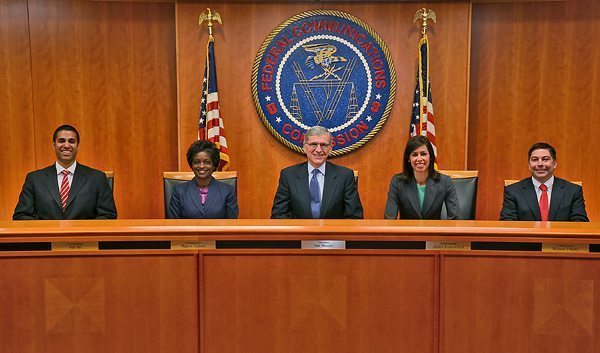The Federal Communications Commission on Thursday circulated a draft Open Internet Notice of Proposed Rulemaking to its commissioners regarding its future stance on net neutrality enforcement. The move comes after a federal appeals court earlier this year ruled against the FCC in how it was looking to regulate Verizon Communications’ business model for delivering broadband services.
Commenting through the FCC blog, Chairman Tom Wheeler noted that while the United States Court of Appeals for the District of Columbia may have remanded the FCC’s previous efforts, the government agency is proposing to “reinstatement of the open Internet concepts adopted by the commission in 2010.”
“The notice does not change the underlying goals of transparency, no blocking of lawful content and no unreasonable discrimination among users established by the 2010 rule,” Wheeler explained. “The notice does follow the roadmap established by the court as to how to enforce rules of the road that protect an open Internet and asks for further comments on the approach.”
The notice will propose that all Internet service providers “must transparently disclose to their subscribers and users all relevant information as to the policies that govern their network; that no legal content may be blocked; and that ISPs may not act in a commercially unreasonable manner to harm the Internet, including favoring the traffic from an affiliated entity.”
“To be very direct, the proposal would establish that behavior harmful to consumers or competition by limiting the openness of the Internet will not be permitted,” Wheeler noted, adding that the appeals court has allowed for the FCC to prevent harmful conduct if “it were found to not be ‘commercially reasonable.’”
In attempting to meet that goal, Wheeler said the proposal would set a “high bar” for what is considered commercially reasonable and that it will “also observe that the commission believes it has the authority under Supreme Court precedent to identify behavior that is flatly illegal.”
In trying to further explain how the “commercially reasonable” language would be used, Wheeler said it would protect against “harm to competition and consumers stemming from abusive market activity,” including a nod towards “anti-competitive price increases.”
Wheeler added that he planned to conclude the proceedings with “enforceable rules” by the end of the year. The FCC said it will consider proposed rules on May 15, and has provided a specific e-mail address to solicit comments from the public at openinternet@fcc.gov.
Comments on the proposal were somewhat muted as details still need to be released before the true impact of what the FCC is looking to do is known. One note from research firm Ovum stated:
“What is certain, is that the FCC is having to rethink its approach to net neutrality after a January 2014 court ruling stuck down some of the the rules which required internet service providers to offer equal access to their networks,” wrote Matthew Howett, telecom regulation analyst at Ovum. “At that time we said the ruling could pave the way for deals between ISPs and content providers to ensure that the latter group’s traffic is treated adequately, or even prioritized over other services. This of course is of concern to [over-the-top providers], who would generally prefer to avoid having to pay more to ISPs to ensure that their traffic is carried properly. The court ruling however did leave the door open for the FCC to rethink its approach and devise a more coherent set of rules, which we now await. However for the FCC to proceed as the reports suggest would mark a fairly significant departure from both the stance they have taken since this debate first came about many years ago, and efforts policymakers are pursuing elsewhere.”
Following the court decision in January, Comcast struck a deal with Netflix over the handling of the content provider’s streaming services. Financial details of the agreement were not released, but some have argued that it amounted to Netflix having to pay Comcast to stop strangling its streaming video service.
After the agreement, Netflix noted that the speed at which its customers were able to view content had increased significantly over Comcast’s network.
How net neutrality regulations will play out over wireless networks is a different story as wireless carriers are often constrained by how much spectrum they have to transport data traffic. The FCC has so far refrained from strictly enforcing net neutrality regulations against wireless carriers, many of which have data plans that call for consumers to have their network speeds reduced once they hit the limit of their data bucket or are found to be “abusing” network privileges.
AT&T recently launched a sponsored data offer that allows content providers to pay for consumers to access their content over the carrier’s wireless network. The FCC could also tackle this issue when it comes back with its net neutrality proposal.
Bored? Why not follow me on Twitter?



